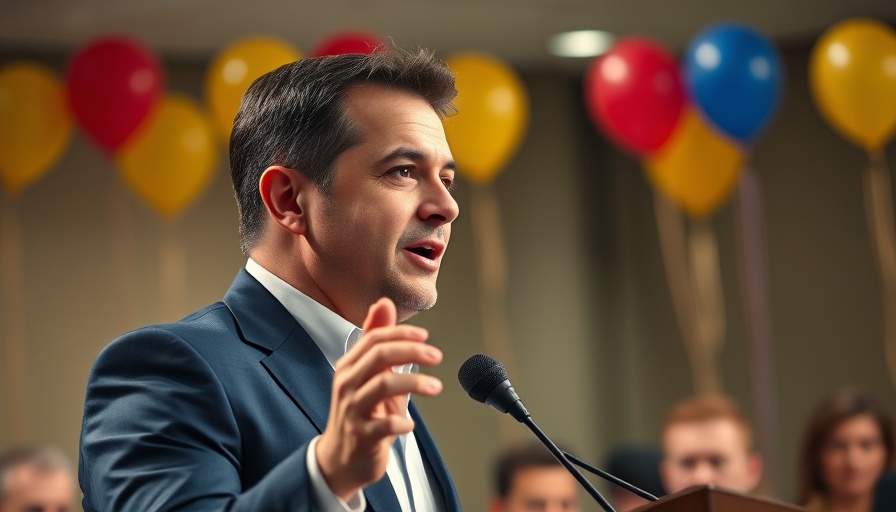
Bizarre Nighttime Ruling Raises Eyebrows in San Francisco
In a controversial midnight decision that has sent shockwaves through the community, the San Francisco youth and family nonprofit Collective Impact has surprisingly regained its ability to receive public funds. This decision came from administrative law judge Andrea McGary just hours after she requested critical information in a case filled with allegations of corruption and bribery against the nonprofit. The decision has prompted city officials to describe the move as "absurd," igniting debates about the integrity of public administrative processes.
Key Allegations Highlight Uneven Oversight
The troubles for Collective Impact, led by director James Spingola, began amid a broader corruption scandal that enveloped former Human Rights Commission head Sheryl Davis. Davis was at the center of a scandal after excessive expenditures were uncovered, including lavish trips to Martha's Vineyard, some of which were partly funded by Collective Impact. Investigating this turmoil led to questions surrounding Spingola, whose personal ties to Davis were seen as a conflict of interest, as he lived with her while allegedly receiving up to $1.5 million in grants from the city.
These issues only scratch the surface of a scandal that has compromised the administration of the city’s Dreamkeeper Initiative, a program aimed at investing $60 million into the African American community. Subsequent probes revealed that over $4.6 million had been misallocated or misspent under Davis's administration, complicating procedures and trust in public funding.
City Attorney's Office Plans to Appeal
In light of the late-night ruling that reinstated Collective Impact's funding, the city attorney’s office announced plans to appeal the decision, which is seen as a key part of a larger effort to maintain accountability within city-funded organizations. Officials argue that the city must safeguard public resources against mismanagement and that the abrupt nature of McGary’s ruling—with her requesting vital information even as she delivered her verdict—questions the judicial process's legitimacy.
Emotional Toll on Leadership amid Scandal
Following the ruling, Spingola announced his resignation, attributing his decision to the scandal’s adverse effects on his health. In a statement, he expressed mixed feelings about the ruling, acknowledging some vindication but also recognizing the intense personal toll the ordeal has taken. “We are deeply gratified by today’s decision, which acknowledges the accusations against Collective Impact were speculative and unsupported by the evidence,” he commented in a message sent from his office, as community members and stakeholders awaited clarity on the organization’s future.
Implications for Local Nonprofits and Future Accountability
This bizarre turn raises critical questions about accountability for local nonprofits, particularly those involved in public funding. With the community keenly interested in how public dollars are managed, this incident serves as a warning to both the city officials and nonprofit administrators about the importance of transparency and ethical governance.
The fallout can lead to greater scrutiny of nonprofits seeking government contracts and may necessitate stronger systems of oversight to ensure that taxpayer money is allocated transparently and ethically.
Community Concerns Amid Political Maneuvering
As the San Francisco community processes this decision, concerns remain about how the city will move forward in ensuring public safety and effective governance. Public hearings and city council meetings will likely see increased attendance, as residents demand answers about the future of the Dreamkeeper Initiative and its impact on community welfare. With the upcoming appeal and the city attorney firmly against the ruling, the drama surrounding Collective Impact is far from over.
A Call for Greater Transparency and Accountability
The Collective Impact case epitomizes the complexities of nonprofit governance, especially as it pertains to public trust and integrity. As parents and community leaders seek assurances that public resources will be managed appropriately, a call for reform in city oversight procedures becomes increasingly vital. There needs to be an open dialogue on how authorities can better monitor public-funded projects and ensure that mismanagement is swiftly addressed and rectified.
As San Francisco continues to grapple with these issues, the community’s engagement and vigilance will be essential in advocating for a transparent, accountable local government that effectively serves its populace—especially the most vulnerable among them.
 Add Row
Add Row  Add
Add 




Write A Comment